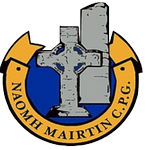22,297 total views, 6 views today
Jim Mooney charts the origins and development of the Naomh Mairtin club. He discusses the role of the clergy in the emergence of Gaelic games in the region, the acquisition of a club ground, the early on field record and travel to game. Comparisons are made between past and present when considering the role of the club in the community and assessing the quality of players from different teams and different eras. Issues such as the role of women in the GAA and local rivalries are also touched upon.
John Mulroy charts his beginning of his involvement as a ‘masseuse’ with the Naomh Mairtin club as a teenager in the late 1950s. The background to the emergence of the club and nature of his subsequent involvement are discussed as are the influence of lifestyle and work on natural levels of fitness. In addition, Mulroy addresses issues of emigration, amateurism and professionalism, changing communities and youth development .
Alongside the stories of his early involvement with the GAA and how he came to play with Naomh Mairtin, Nicholas Fitzpatrick touches on clerical influence in the promotion of the Gaelic games and the social life that surrounded those same games. Fitzpatrick reflects on the impact of rule changes on Gaelic football, the teams and players he has admired in the past and his criticisms of the handling of the controversial Leinster final of 2010. Fitzpatrick also considered the economic recession and the role of the GAA in securing employment for players.
As Chairman of the Naomh Mairtin, Paddy Sullivan reflects on the challenges facing the club and the plans to development the underage system through programmes of education and training. Sullivan discusses the place of the club within community life, the funding of the club through sponsorships and fundraising and the relations the club has with Ladies Gaelic football, with whom it shares facilities. Concerns over the potential impact of economic recession are raised as are such issues as the relationship with the local clergy and rules development.
